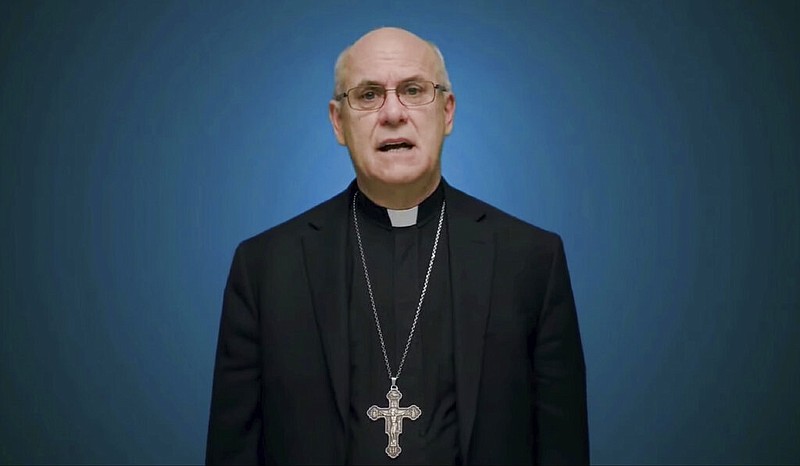U.S. Catholic bishops overwhelmingly approved the drafting of a “teaching document” that many of them hope will rebuke Catholic politicians, including President Joe Biden, for receiving Communion despite their support for abortion rights.
The decision, vehemently opposed by a minority of bishops, came despite appeals from the Vatican for a more cautious and collegial approach to the divisive issue. And it raises questions of how closely the bishops will be able to cooperate with the Biden administration on issues such as immigration and racial injustice.
The result of the vote — 168 in favor and 55 against — was announced Friday near the end of a three-day meeting of the U.S. Conference of Catholic Bishops that was held virtually. The bishops had cast their votes privately on Thursday after several hours of impassioned debate.
Supporters of the measure said a strong rebuke of Biden is needed because of his recent actions protecting and expanding abortion access, while opponents warned that such action would portray the bishops as a partisan force during a time of bitter political divisions across the country.
As a result of the vote, the U.S. Conference of Catholic Bishops’ doctrine committee will draft a statement on the meaning of Communion in the life of the church that will be submitted for consideration at a future meeting, probably an in-person gathering in November. To be formally adopted, the document would need support of two-thirds of the bishops.
One section of the document is intended to include a specific admonition to Catholic politicians and other public figures who disobey church teaching on abortion and other core doctrinal issues.
Bishop Donald Hying of Madison, Wis., said during Thursday’s debate that he speaks with many people who are confused by a Catholic president who advances “the most radical pro-abortion agenda in history,” and action from the bishops’ conference is needed.
“They’re looking for direction,” Hying said.
Bishop Robert McElroy of San Diego countered that the conference would suffer “destructive consequences” from a document targeting Catholic politicians.
“It would be impossible to prevent the weaponization of the Eucharist,” McElroy said. He warned that the initiative would weaken the bishops’ ability to speak on issues such as poverty, racism and the environment.
Biden, who attends Mass regularly, says he personally opposes abortion but doesn’t think he should impose that position on Americans who feel otherwise. He’s taken several executive actions during his presidency that were hailed by abortion-rights advocates.
Neither Biden nor the White House press office had any immediate comment on the bishops’ vote.
The chairman of the U.S. Conference of Catholic Bishops doctrine committee, Bishop Kevin Rhoades of Fort Wayne-South Bend, Ind., said no decisions have been made on the final contents of the proposed document. He said bishops who are not on the committee will have chances to offer input, and the final draft will be subject to amendments before it is put up to a vote.
Rhoades also said the document would not mention Biden or other individuals by name and would offer guidelines rather than imposing a mandatory national policy.
That would leave decisions about Communion for specific churchgoers up to individual bishops and archbishops. Cardinal Wilton Gregory, the archbishop of Washington, has made clear that Biden is welcome to receive Communion at churches in the archdiocese.
Gregory was one of nearly 70 bishops who signed a letter to U.S. Conference of Catholic Bishops president and Los Angeles Archbishop José Gomez urging him to delay the Communion discussion until the bishops convene in person, but that request was not granted.
“The choice before us at this moment,” Gregory said during Thursday’s debate, “is either we pursue a path of strengthening unity among ourselves or settle for creating a document that will not bring unity but may very well further damage it.”
The U.S. Conference of Catholic Bishops has identified the fight against abortion as its “preeminent” priority.
David Campbell, a political science professor at the University of Notre Dame, said the bishops’ vote “reflects the fact that the same fault lines dividing all American voters also divide American Catholics — and Catholic leaders.”
“The more attention the bishops focus on the Communion question, the more the church will be perceived as being in the political fray, which risks driving some Catholics away,” Campbell said via email.
